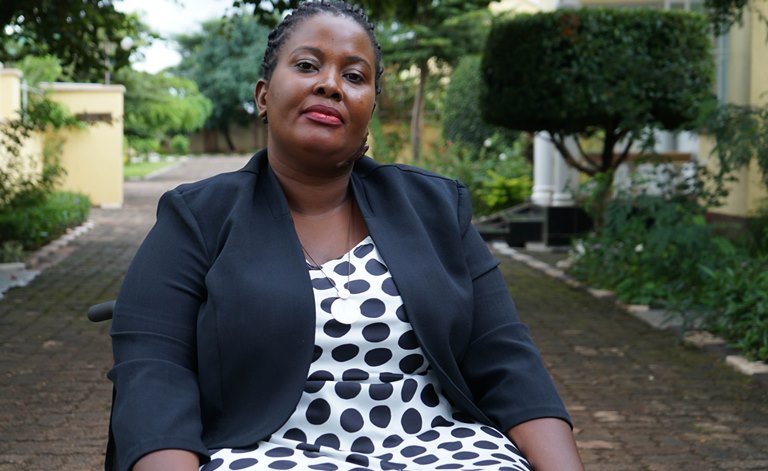MHRC reports Malawi’s weak graft fight
Malawi Human Rights Commission (MHRC) has reported Malawi Government’s weak fight against corruption to the 71st Ordinary Session of African Commission on Human and People’s Rights underway in The Gambia.
MHRC chairperson Scader Louis said in her presentation made virtually that there are delays for Malawi to clear the backlog of corruption cases.

She said there is also a growing public perception that the Executive was undermining the fight against corruption by allegedly shielding some high-profile figures and the under-resourcing of the Anti-Corruption Bureau (ACB) to perform its legal mandate.
In her presentation, Louis said Malawi needs to strengthen mechanisms of fighting corruption.
She also said Executive rhetoric does not match the actions and more needs to be done in this area, including resourcing of ACB which is mandated by law to curb, arrest and fight corruption.
Louis said: “There have been continued threats to the enjoyment of the right to demonstration through denial of permission to hold demonstrations.

“There have also been some violence and political interference in the decisions of district commissioners or chief executive officers [of city councils] in rejecting notifications to conduct demonstrations [for example] the recent Citizens Against Impunity demonstrations on 4th March 2022.”
She also reported that there is gross inadequate funding to MHRC to fully implement its mandate and operationalise the Gender Equality Act and Access to Information Act.
She said Malawi continued to register a rise in the cost of living due to the increase in prices of basic needs like food, rentals and supplies, and unemployment estimated at six percent by the International Labour Organisation.
“ The government should ensure the implementation of socio-economic recovery plan 2021–2023 to mitigate the socio-economic challenges facing many Malawians,” she recommended.
On a positive note, the MHRC chairperson commended the Tonse administration on its zeal to promote gender equality.
In an interview on Sunday, Centre for Social Accountability a n d Tr a n s p a r e n c y executive director Willy Kambwandira said there is need for the leadership to act sternly on corruption.
He said: “We can choose to fund ACB or not, but when we do so actions will only speak louder than words. Malawians will not tolerate this too long, and we are encouraged by the recent demand for accountability by Malawians. We need to sustain this.”
ACB director general the honourable court and at the moment, we have been waiting for the decision of the court.”
In a separate interview, Association of Persons Living with Albinism in Malawi president Young Mahamba said his association lost patience with the case.
However, he said they are still looking forward to hear how the court will decide the matter.
Twelve people were arrested in March 2018 as suspects in the murder of Masambuka. Hearing of the case concluded in February 2020, but judgement was yet to be delivered.
All the 11 accused, but one, pleaded guilty to the charge of murdering the boy.
Masambuka went missing on March 9 2018 and his body was later found buried in a garden on April 2 2018 near Makawa Village in Senior Chief Mkoowola.
Among those arrested in connection with Masambuka’s murder are Roman Catholic priest Father Thomas Muhosha, police officer Chikondi Chileka, the deceased’s biological brother Kassim Masambuka and Machinga District Hospital clinical officer Lumbani Kamanga.





